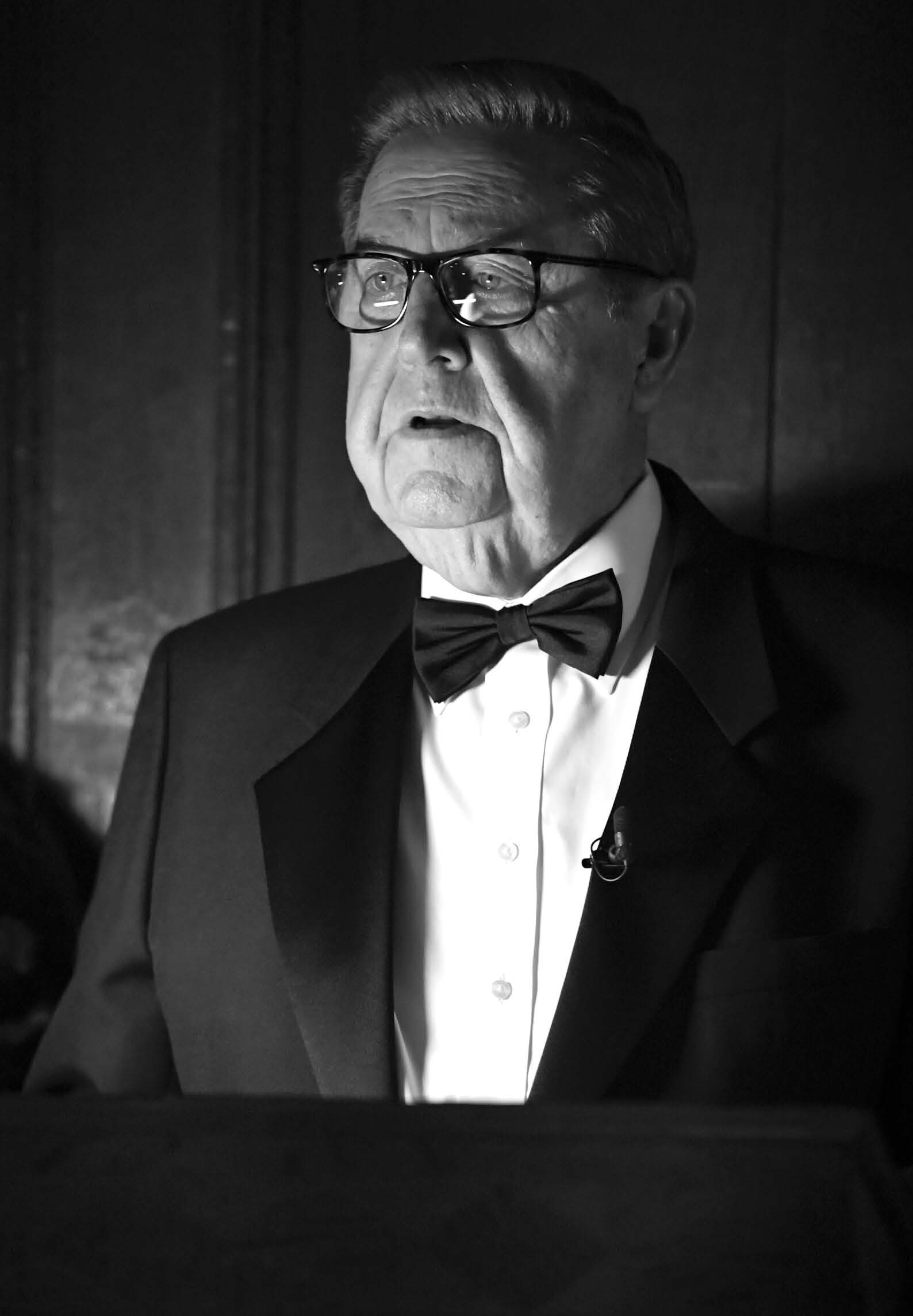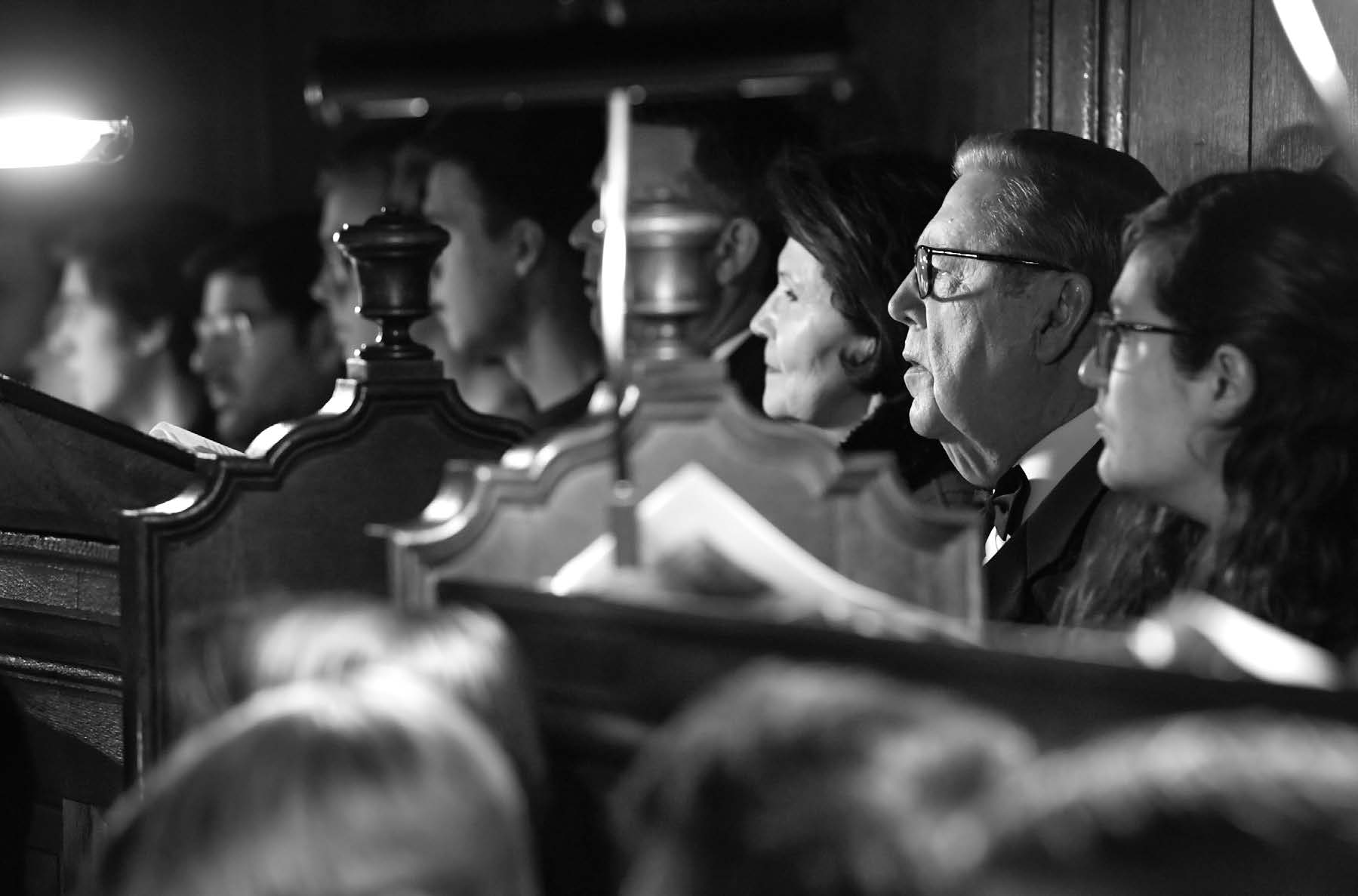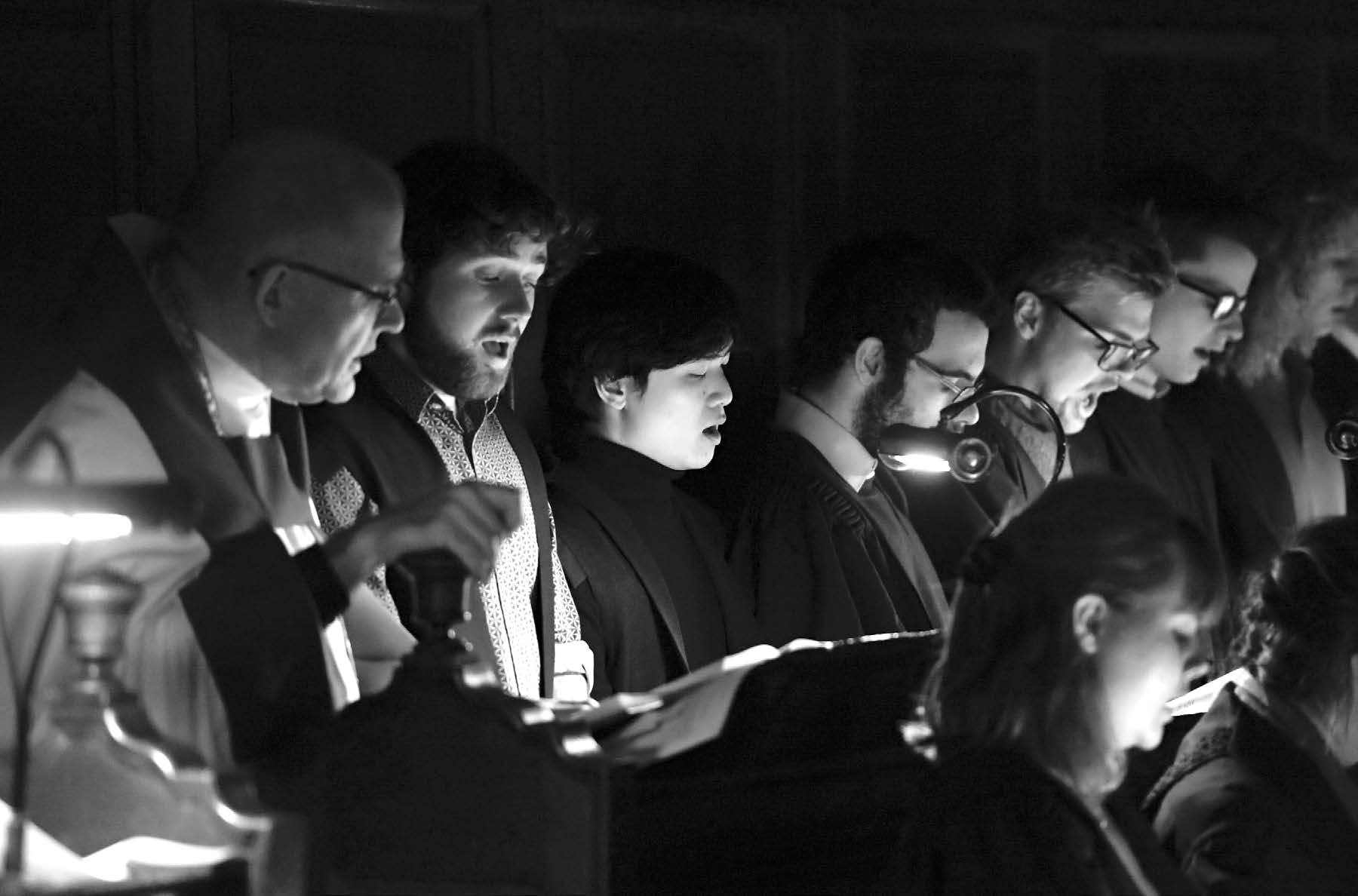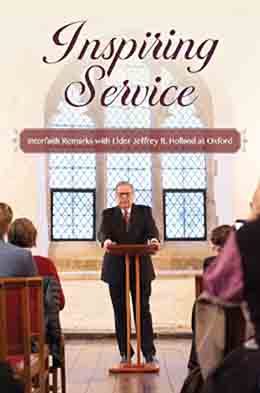Jeffrey R. Holland
Jeffrey R. Holland
Jeffrey R. Holland, "Christmas Comfort" in Inspiring Service, ed. Andrew Teal (Religious Studies Center, Brigham Young University; Salt Lake City: Deseret Book, 2019), 111–118.
The following remarks were presented at the “Nine Lessons and Carols” service in the Pembroke College Chapel at the University of Oxford on Sunday, 25 November 2018.
 Elder Jeffrey R. Holland
Elder Jeffrey R. Holland
Approximately forty days after Mary’s delivery of her child, she and Joseph took the baby, named Jesus, to the temple, where the infant was to be formally presented unto the Lord. As they made their way toward the temple, the Holy Spirit was resting upon a beloved, elderly man named Simeon. It was revealed to this gentle and venerable man that he would not die before seeing the Messiah, “the Lord’s Christ,” as Luke phrases it (2:26). The Spirit then led him to the temple, where he saw a young carpenter and his wife enter the sanctuary with a newborn babe cradled in His mother’s arms. Simeon, who had waited all his life for “the consolation of Israel,” took that consolation in his arms, praised God, and said, “Lord, now lettest thou thy servant depart in peace, for mine eyes have seen thy salvation, . . . a light to lighten the Gentiles, and the glory of thy people Israel” (Luke 2:26, 29–30, 32). Luke goes on to say, “And Joseph and his mother marvelled at those things which were spoken of him. And Simeon blessed them, and said unto Mary his mother, Behold this child is set for the fall and rising again of many in Israel; and for a sign which shall be spoken against; (yea, a sword shall pierce through thine own soul also,) that the thoughts of many hearts may be revealed” (Luke 2:33–35).
There’s a profound Christmas message for me in the message this dear old man gave to beloved Mary in that first Christmas season. He was joyously happy, but his joy was not of the superficial kind. It was not without its testing and trying. In that sense, it didn’t have much to do with toys, or trinkets, or tinsel, though these have their Christmas place. No, his joy had something to do with the fall and rising again of many in Israel, with the warning that this child’s life, or more specifically his death, would be like a sword piercing through his beloved mother’s soul. We might well ask, was such an ominous warning, such a fateful prophecy appropriate to this season of joy? Surely this was untimely, maybe even unseemly at that moment, when the Son of God was so young and tender and safe, and his mother so thrilled with His birth and His beauty. Well, I think our answer is, it was appropriate, and it was important. I submit that unless we see all the meaning and joy of Christmas the way old Simeon saw it all (and, in a sense, forced Joseph and Mary to see it)—the whole of Christ’s life, the profound mission, the end as well as the beginning—then Christmas will be just another day off work with food and fun and football, and a measure of personal loneliness and family sorrow for some. The true meaning, the unique, joyous meaning of the birth of this baby was not confined to those first hours in Bethlehem but would be realized in the life He would lead and in His death, in His triumphant atoning sacrifice (remember why Joseph and Mary were in the temple) and in His prison-bursting Resurrection. These are the realities that make Christmas joyful.
But to be true to the complete experience, we must, on occasion, speak of Christmases and other days in our individual and collective lives that for whatever reason may not be as joyful or do not seem to be the season to be jolly. May I indulge in a personal reminiscence in this regard?
 Elder and Sister Holland singing with the choir
Elder and Sister Holland singing with the choir
On the evening of 23 December 1976, my father underwent surgery to relieve the effect of osteoarthritis in the vertebrae of his back. The surgery was successful, but near the conclusion of it he suffered a major heart attack. Eight hours later in recovery he suffered another one. From those two attacks, he sustained massive damage to a heart that was already defective from an illness suffered in his youth. By the time we finally got to see him, wired and tubed, gray and unconscious, it was midafternoon on 24 December, Christmas Eve. “Magnificent timing,” I muttered to no one in particular. The day drew to an end without much change. The lights of Christmas Eve came on and then turned off. It was dark and lonely. I sat and paced and prayed alone in a hospital unfamiliar to me. I was feeling pretty sorry for myself. “Why does it have to be like this?” I thought. “Why does this have to be on Christmas? Of all the times to lose your dad, did it have to be on Christmas?” I confess that I was muttering things aloud by then as I walked what surely must have been every inch of the public space and a fair share of the private space in that hospital.
Then, at 3:00 a.m. or so, early in the morning in a very quiet hospital, immersed as I was in some sorrow and a lot of self-pity, heaven sent me a small, personal, prepackaged revelation: a tiny Christmas declaration. In the midst of my mumbling about the very poor calendaring of all this, I heard the clear, unbroken cry of a baby. It truly startled me. Only then did I realize that I, in my wandering, had gone near the maternity ward, somewhere, I suppose, near the nursery. To this day, I do not know just where that baby was or how I heard it, but I like to think it was a brand-new baby, taking perhaps that first breath and announcing that he or she had arrived in the world, a fact of which everyone was supposed to take note. In that moment, it was as if the Lord had sent me a theological wake-up call: “Listen, Jeffrey. This is the happiest night in the whole year for some young couple who may otherwise be poor as church mice. Perhaps this is their first baby; perhaps he or she is their own personal consolation of Israel; perhaps he or she is the only consolation they have right now in what otherwise may be a difficult life. In any case, they already love this baby and this baby already loves them.” And think of the calendaring: born on Christmas Day! What a reminder of God’s grace and timing. Whatever pain may lie ahead, whatever sword may pierce their souls from time to time in life, they will be triumphant because of another birth, because the Prince of Peace was also born that same day, “once in royal David’s city.”[1]
Furthermore, it dawned on me that those could’ve been my own young parents, who were also impoverished when I was born. I was a December baby, and my mother never wearied of telling me that that was her happiest Christmas ever. Birth, and life, and death, and salvation—the whole divine experience in all its richness and complexity—these are God’s Christmas gifts to us, all of them, and we receive them as a package—a Christmas package.
 The Reverend Dr. Andrew Teal singing with the choir
The Reverend Dr. Andrew Teal singing with the choir
I learned something about eternal life that Christmas as well as something about the life of Jesus of Nazareth. With new eyes then, that morning, I went back to look in on my father, the great gift giver who was starting to make his way out of the world on Christmas Day.[2] He was doing so on the wings of the greatest gift ever given: the Atonement and Resurrection of the Lord Jesus Christ. I thought of another father who gave that gift, “For God so loved the world, that he gave his only begotten Son, that whosoever believeth in him should not perish, but have everlasting life” (John 3:16). Yes, perhaps the most important visitor of all in that first Christmas season may have been old Simeon, who, not in the absence of hard days and long years and swords that pierce hearts, but because of them would sing with us tonight of the Babe of Bethlehem’s birth and life and victory over death. “Joy to the world,” Simeon would sing, “the Lord is come; let earth receive her King! . . . Rejoice! Rejoice when Jesus reigns, and Saints their songs employ. . . . No more will sin and sorrow grow, nor thorns infest the ground; He’ll come and make the blessings flow far as the curse was found. . . . Rejoice, rejoice in the Most High, . . . and ever worship God.”[3]
I so rejoice, and I so worship with you in this blessed season of the year, in the name of Jesus Christ, amen.
Notes
[1] Cecil Frances Alexander, “Once in Royal David’s City,” Hymns (Salt Lake City: The Church of Jesus Christ of Latter-day Saints, 1985), no. 205.
[2] My father never regained strength and died near the start of the new year.
[3] Isaac Watts, “Joy to the World,” Hymns, no. 201.
